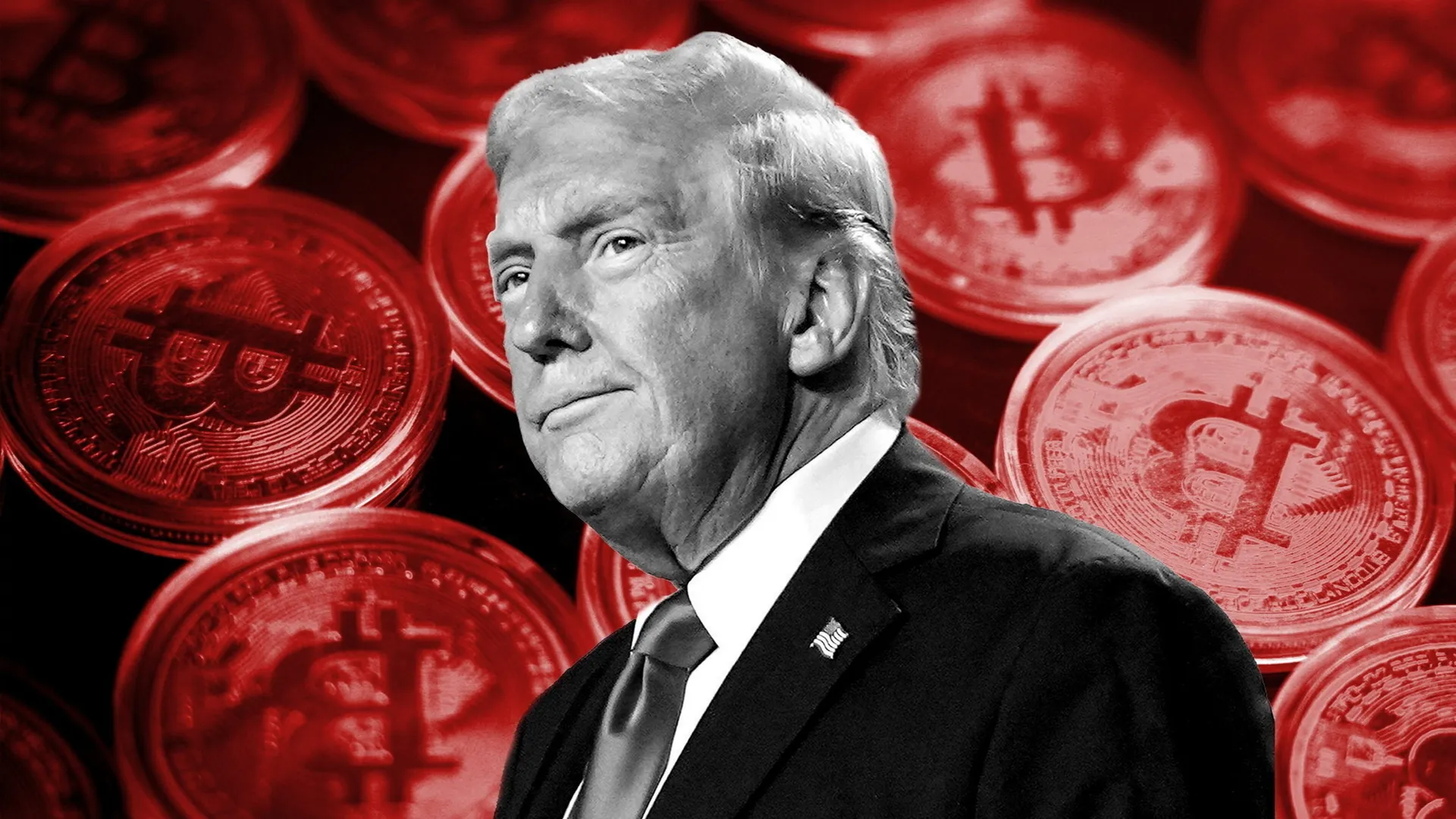
As the blockchain industry closely monitors US policies, the Trump administration has once again become the focus. As Trump will return to the White House in 2025, discussions about the "crypto background" of candidates for core positions in his government continue to heat up in the industry. From the chairman of the SEC to the secretary of the Treasury, these key positions that control the lifeline of financial regulation, if taken over by cryptocurrency-friendly people, the blockchain industry in the United States may usher in major development opportunities.
This phenomenon is not isolated. In recent years, the US regulatory policy on the crypto industry has gone through repeated changes, swinging back and forth between supporting innovation and strengthening regulation. Trump's appointment may not only change the current policy, but also open up new prospects for the further legalization and promotion of blockchain technology and crypto assets in the United States.
Who will become the core members of this "crypto group"? How will their crypto experience and stance affect policy? More importantly, what kind of future will this bring to the blockchain industry? This article will analyze them one by one.
Successive governments and the crypto industry: a history of suppression and promotion
Before delving into the possible policy shifts in cryptocurrency brought about by the Trump administration, it is helpful to review the attitudes of previous U.S. governments towards the crypto industry to understand the current policy environment and possible future changes. Each government has left its own deep mark in exploring how to balance regulation and innovation.
Obama Administration (2009-2017)
In 2013, the Financial Crimes Enforcement Network (FinCEN) under the U.S. Treasury Department issued the first guidance on virtual currencies, requiring exchanges and other service providers to comply with anti-money laundering (AML) and know your customer (KYC) regulations. This guidance directly prompted the early Bitcoin exchange Mt.Gox to terminate its U.S. business under compliance pressure. In the same year, the FBI closed the famous Dark Web market Silk Road and arrested its founder Ross Ulbricht. At that time, Silk Road used a large number of Bitcoins for illegal transactions. This case marked the first time that Bitcoin became a core target of global law enforcement agencies.
Through these measures, the Obama administration demonstrated for the first time its regulatory intentions for crypto assets, with a focus on preventing risks and maintaining the stability of the financial system. This set the tone for subsequent government handling of cryptocurrencies and made the crypto industry realize that government regulatory intervention is inevitable. Will the Trump administration continue this regulatory attitude, or will it take a different approach?
Trump Administration (2017-2021)
Against the backdrop of the Obama administration's initial attempts to regulate crypto assets, the Trump administration's attitude toward the crypto industry appears more direct and tough. Trump has publicly expressed his distrust of Bitcoin and other crypto assets, believing that these assets lack intrinsic value and may facilitate illegal activities. In July 2019, Trump directly criticized Bitcoin on Twitter: "Bitcoin is not a currency, its value is highly volatile, and is based entirely on air. Unregulated crypto assets can facilitate illegal activity, including drug trafficking." This statement was seen as a tough stance on the crypto industry.
Meanwhile, during Jay Clayton’s tenure, the Securities and Exchange Commission (SEC) launched a series of enforcement actions against unregistered initial coin offerings (ICOs), most notably the ban on Telegram’s blockchain project TON, which the SEC determined violated securities laws and ultimately forced the project to terminate. Similarly, Kik Interactive’s ICO was also sued by the SEC, and the company eventually paid a $5 million fine.
However, despite the Trump administration's tough stance on regulation, it has also shown a certain openness in supporting innovation. Under the impetus of J. Christopher Giancarlo, the Commodity Futures Trading Commission (CFTC) approved the Bitcoin futures contracts of the Chicago Mercantile Exchange (CME) and the Chicago Board Options Exchange (CBOE). This move is seen as an important step for cryptocurrencies to enter the mainstream financial market, allowing the crypto industry to see a glimmer of hope for development amid tough regulation.
The Trump administration's policies include both strong crackdowns on non-compliant behavior and support for certain innovative attempts. This "coexistence of suppression and support" attitude has formed a complex policy environment that neither allows the industry to completely let go nor gives some innovators a certain amount of breathing space. This is in stark contrast to the Biden administration's comprehensive crackdown, and is one of the reasons why the crypto industry is looking forward to Trump's return.
Biden Administration (2021-Present)
Following the Trump administration's dual policies, the Biden administration has taken a stricter regulatory stance on cryptocurrencies. Current SEC Chairman Gary Gensler has actively promoted regulation of the crypto market. In 2022, the SEC launched an investigation into crypto exchage Coinbase and Kraken, determining that some of their crypto assets and staking services constituted unregistered securities. These regulatory actions have caused widespread concern in the industry.
The Biden administration has further tightened control over the crypto industry through the Treasury Department. Treasury Secretary Janet Yellen made it clear that the use of cryptocurrencies in illegal financing has become a serious problem, and supported the inclusion of virtual asset service providers (VASPs) under the Bank Secrecy Act. The SEC's lawsuit against Ripple Labs further highlights the Biden administration's tough attitude. This case has not only sparked controversy over the classification of tokens worldwide, but also made the entire industry full of doubts about the prospects for regulation.
The Biden administration has significantly strengthened regulation, with a focus on "regulation over innovation". Under this strict regulatory environment, Trump's return may bring about a major shift in US crypto policy. The crypto industry is looking forward to this shift, hoping to usher in a more open and innovation-friendly policy environment, opening up a broader space for the development of blockchain technology and crypto assets.
As the US cryptocurrency policy swings back and forth between different governments, the leadership and policy direction of regulatory agencies are crucial to the development of the industry. Especially the Securities and Exchange Commission (SEC), whose chairman's position and actions directly affect the ecology of the crypto market. During the Biden administration, SEC Chairman Gary Gensler's tough regulation has caused widespread controversy and industry pressure. With Trump's re-election, the leadership of the SEC will usher in a huge change.
SEC: A new chapter after Gensler's departure
"Crypto has suffered from Gensler for a long time!" This may be the common feeling of countless blockchain entrepreneurs after hearing that Gary Gensler will leave in January 2025. The chairman who has been in charge of the SEC since 2021 has left a deep mark on the entire crypto industry with his tough law enforcement style. Every one of his law enforcement actions, from Ripple's $1.3 billion unregistered securities case to Coinbase and Kraken's compliance issues, is like a heavy hammer, forcing many crypto companies to carefully test the edge of the rules. However, with the upcoming departure of this "iron-fisted chairman", the SEC seems to have a chance to turn around.

There are two new names on Trump's list of new appointments: Theresa Goody-Gillen and Daniel Gallagher. These two potential candidates not only have different backgrounds, but also represent completely different regulatory philosophies.
When Goody Gillen’s name first appeared in the blockchain circle, she was labeled as an “innovation protector.” This senior lawyer is not only the founder of Goody Counsel, but also the “legal mentor” of countless crypto startups. She always firmly tells entrepreneurs: “Vague rules will only hold people back. What we need is a clear direction, not the fear of regulation.” Throughout her career, her work includes helping companies legally avoid regulatory traps, as well as conveying the voice of the industry to regulators—rules need to dance with technology, rather than suppress it.
If she becomes the next chair of the SEC, her first task may be to revive the "safe harbor" plan proposed by "crypto mom" Hester Pierce but never implemented. This plan provides a three-year development window for crypto startups, exempting them from the risk of being enforced for failing to fully comply with securities regulations. Once Goody Gillen takes the helm, this policy may no longer be just a distant concept, but a realistic guarantee for the industry. She may even further promote the clarification of token classification standards, reduce the industry's uncertainty in compliance, and attract more companies to turn their attention to the United States.
Daniel Gallagher, on the other hand, is an out-and-out "challenger of the old framework. " As a former SEC commissioner and current chief legal officer of Robinhood, he makes no secret of his criticism of the current regulatory approach. "We cannot use a law born in the last century to govern a technology that is shaping the future." This sentence may be the best footnote to his professional philosophy. Gallagher once said bluntly that if he becomes the chairman of the SEC, he will review all past enforcement actions against crypto companies. He is particularly skeptical about the Ripple case and the fines imposed on Coinbase, believing that these enforcement actions not only fail to effectively protect investors, but also weaken the competitiveness of the United States in the field of global financial technology. He advocates that regulation should rely more on clear and transparent rules rather than chasing companies around to impose fines.
Imagine if the SEC could develop a clear set of token classification standards to let companies and investors know which ones are legal and which ones need further reporting; if startups can experiment in a safe framework without worrying about being fined and bankrupted at any time, how will this change the entire industry? For entrepreneurs, this is not only a policy change, but also a return of confidence. From the past "start work first and pay fines later" to the future "there are laws to follow, no worries", such a transformation may truly make the United States once again the innovation center of the global crypto industry.
The transfer of power at the SEC will be a key node in the development of the crypto industry. Gary Gensler ended his term with a "punitive" regulatory model, but his successor may bring a completely different storyline. Whether it is Goody Gillen's style of paving the way for innovation or Gallagher's courage to challenge the old rules, people are full of expectations for this new chapter that is about to be unveiled. Perhaps, in the future, the SEC will no longer be the "heavy shackles" in the mouths of entrepreneurs, but a booster to escort the industry. Who will ultimately take the helm? The crypto industry is waiting with bated breath.
Ministry of Commerce: From tradition to innovation, Lutnik’s crypto ambitions
At first glance, the Department of Commerce may seem a bit far away from the crypto industry. However, it is an important hub of US economic policy, especially in global trade, technological innovation, and the improvement of international competitiveness. The Secretary of Commerce not only controls the US's negotiating power in international trade agreements, but is also responsible for promoting the competitiveness of US companies in the global market. Therefore, the decisions made in this position often directly affect the positioning of emerging technologies in the global market.
"Bitcoin is the future of the economy!" This powerful statement may best reflect Howard Lutnick's firm belief in cryptocurrency. The billionaire, senior Wall Street financier and CEO of Cantor Fitzgerald is becoming an important part of Trump's crypto policy blueprint - he has been nominated as the next Secretary of Commerce, tasked with reshaping the competitiveness of the US economy.
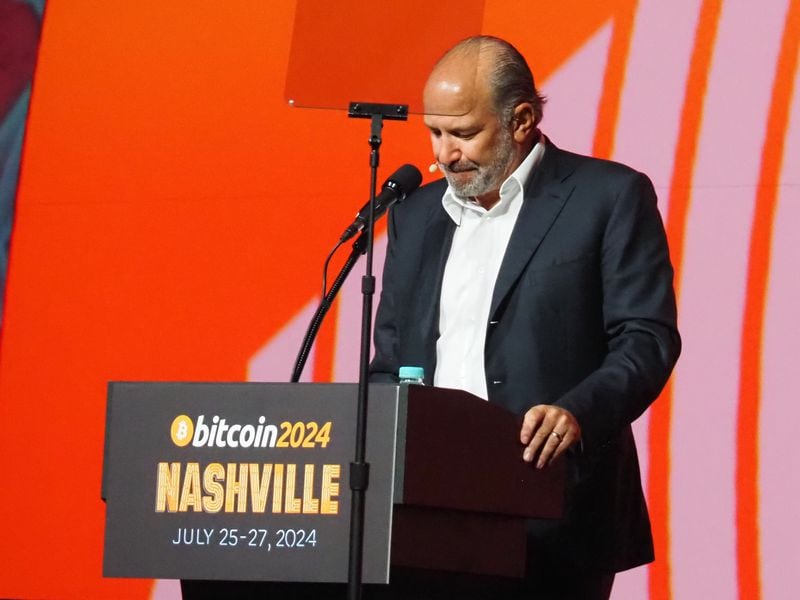
Trump said in a statement: "I am pleased to announce that Howard Lutnick, Chairman and CEO of Cantor Fitzgerald, will join my administration as U.S. Secretary of Commerce. He will lead our tariff and trade agenda and be directly responsible for the Office of the United States Trade Representative." Rather than being a traditional business official, he is more like an evangelist for the crypto industry, using his unique "finance + technology" language to depict the future economic blueprint.
Lutnick's story is closely connected to the cryptocurrency industry and began with his cooperation with Tether. Since 2021, his company Cantor Fitzgerald has helped Tether manage a large amount of U.S. Treasury bonds that support the USDT stablecoin. This move not only made him an important promoter in the stablecoin ecosystem, but also provided a practical example of how the cryptocurrency industry can bridge with traditional finance. Lutnick once said in an interview: "Bitcoin is not only an asset of the future, but also a part of the future economy." This sentence has also become the best footnote to his policy proposition.
If Lutnick succeeds as Secretary of Commerce, his influence may be far more than just traditional trade and economic policies. He is very likely to push the United States to become the main advocate and promoter of cryptocurrency in the international market. He has repeatedly stressed that the United States needs to lead the digital currency revolution globally, rather than passively following the footsteps of other countries. "We have the largest capital market and the strongest financial system, and if we don't take the lead in promoting the widespread use of cryptocurrency, we will lose this advantage." He warned his financial peers.
In Lutnick's policy vision, stablecoins may be one of the core of his promotion. He is well aware of the potential of stablecoins in cross-border trade and payments, and is also aware of how the current regulatory uncertainty in the United States on stablecoins has weakened its international competitiveness. As Secretary of Commerce, he may advocate for incorporating stablecoins into a clearer regulatory framework, while encouraging more companies to apply stablecoins to international trade and settlement. Such efforts will not only help enhance the digital competitiveness of the US dollar, but will also further consolidate the United States' hegemony in the global financial market.
On the other hand, Lutnick's enthusiasm for Bitcoin is not just verbal. He has publicly stated many times that as a decentralized asset, Bitcoin will play an important role in the future global financial system. He may promote the simplification of the process of corporate acceptance of Bitcoin, and even provide policy support for Bitcoin-related business models. Lutnick firmly believes that "we need to provide an environment for innovators to compete freely, rather than a framework that is constantly restricted." This vision is both his creed and his guide to action.
Finance Minister: Bessant’s crypto blueprint
"A free economy requires a free currency." On Wall Street, this phrase is often used to discuss the potential of cryptocurrencies, and one of its most loyal advocates is Scott Bessent. As a potential candidate for Treasury Secretary in the Trump administration, the former chief investment officer of Soros Fund Management is known for his clear pro-crypto stance and advocacy of innovation.
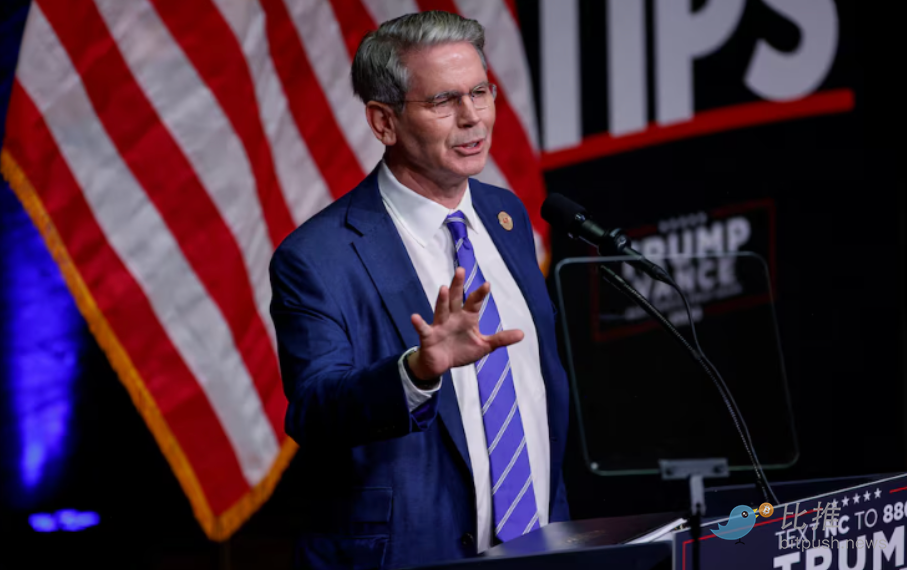
Bessant is considered a staunch supporter of the free market and has always advocated promoting economic development through innovation. In the field of cryptocurrency, his position is even more clear, believing that crypto assets are an important part of the future financial system. For the crypto industry, Bessant's potential appointment may become a key step in policy shift.
Currently, Bessant has become one of the leading candidates for the position of Secretary of the Treasury. It is reported that Trump has met with Bessant at Mar-a-Lago to discuss the future policy direction of the Treasury Department. Trump highly praised Bessant's leadership and free market economic philosophy, which put him far ahead in the list of candidates. However, the official nomination has not yet been announced and the final result is still in the works. Bessant's nomination may not only bring new prospects to the U.S. Treasury Department, but also bring new hope to the crypto industry.
The Treasury Department is the hub of the U.S. government's economic governance, controlling tax policies, anti-money laundering (AML) rules, and international economic affairs, especially in the field of cryptocurrency. It is responsible for formulating capital gains tax policies, regulating virtual asset service providers (VASPs), and coordinating global financial governance with other countries. Former Secretary Steven Mnuchin took a strict anti-money laundering stance on cryptocurrencies, while Janet Yellen further emphasized the importance of preventing illegal capital flows. These conservative policies have, to some extent, limited the United States' initiative in the global cryptocurrency competition.
The free market advocate made it clear that cryptocurrencies represent a new kind of economic freedom. He mentioned in many public occasions that crypto assets are not only a technological innovation, but also a reshaping of economic governance rules by humans. Under his leadership, the Ministry of Finance may no longer focus solely on "preventing risks", but actively explore how to inject momentum into the industry through policy innovation and unleash the true potential of cryptocurrencies.
Bessant's policy vision includes simplifying the tax rules for cryptocurrencies. Currently, the United States' cumbersome tax filing process and high tax rates have become a pain point for many crypto companies and individual investors. If Bessant takes over the Treasury Department, he may promote a clearer and more relaxed capital gains tax policy to provide a more friendly environment for crypto transactions. In addition, he may be committed to relaxing restrictions on legal transactions on the basis of anti-money laundering rules to reduce corporate compliance costs, thereby attracting more blockchain startups to turn their attention back to the United States.
Bessant is enthusiastic about the future of blockchain technology. He has warned that if the United States does not invest more resources in this field, it may lose its leading position in the global fintech competition. As Treasury Secretary, he may promote cross-departmental cooperation, provide financial support and policy incentives for the development of blockchain technology, and enhance the global competitiveness of the US crypto industry through international collaboration. This cross-departmental coordination will not only enhance the United States' technological strength in the blockchain field, but also help improve the international status of the entire industry.
His policies go far beyond domestic tax reform and regulatory deregulation. He is well aware of the importance of international competition, so he may pave the way for American blockchain companies in the international market through active cooperation with other countries. Bessant may propose the establishment of a special cross-border cooperation mechanism to help American companies maintain their advantage in the blockchain technology competition with other countries.
CFTC: Crypto Dad Giancarlo’s Road to Return
"The crypto industry needs not only regulation, but rule makers who can lead innovation." This sentence may best describe Chris Giancarlo's regulatory philosophy. The former chairman of the Commodity Futures Trading Commission (CFTC) is affectionately called "Crypto Dad" in the industry because he actively promoted the legalization of Bitcoin futures during his tenure, paving the way for crypto assets to enter the mainstream financial market. Now, rumors that Giancarlo may return to the CFTC have caused waves throughout the industry. If he takes charge of the CFTC again, the cryptocurrency market may usher in a new spring - a spring with sunshine and blooming flowers.
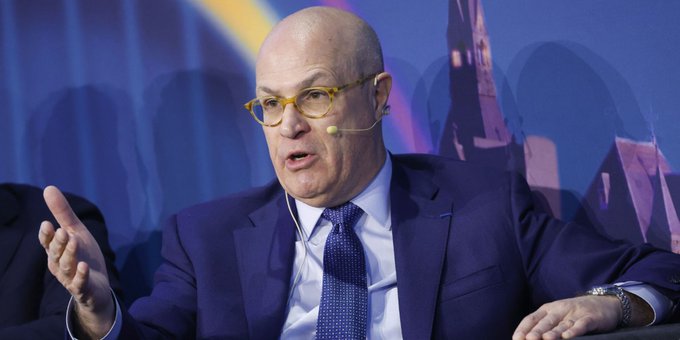
The call for Giancarlo's return is growing. The Trump team has included him in the list of potential candidates for CFTC chairman, praising his market-friendly regulatory style. According to people familiar with the matter, Trump mentioned Giancarlo many times when discussing financial policies with the team, believing that he has found a perfect balance between promoting innovation and maintaining market stability. Although the official appointment has not yet been finalized, the industry's expectations for him are already hot.
As the core regulator of the US derivatives market, the CFTC is responsible for the management of the crypto asset market, including Bitcoin futures. Under Giancarlo's leadership, the CFTC legalized Bitcoin futures for the first time, a decision that was seen as an important milestone for cryptocurrencies to move toward the mainstream. He adheres to the "market-oriented" regulatory philosophy, believing that market rules should be respected and innovation should be avoided from being stifled by excessive intervention. This philosophy is like finding the rhythm in a delicate dance and not stepping on the market's feet.
If Giancarlo serves as CFTC chairman again, his policy direction may include further enriching the crypto derivatives market, such as launching futures or options trading based on assets such as Ethereum. He may also promote the reform of existing compliance processes to lower the threshold for institutional investors to enter the crypto market, allowing more companies to freely operate in this field.
At the same time, Giancarlo's emphasis on global regulatory cooperation has also attracted much attention. He advocates consolidating the United States' leadership in the global crypto market by setting international standards. If he returns to the CFTC, he may promote cross-border regulatory coordination, reduce the confusion and inconsistency of national policies, and provide a clearer regulatory framework for the global market. This will not only help consolidate the United States' position in the crypto industry, but also bring more transparency and trust to global investors, so that everyone can sleep well.
"We should not be afraid of technology, but embrace it." This is Giancarlo's core philosophy. If he successfully returns, as a "crypto dad", he will once again shoulder the mission of pushing the crypto industry forward, and the future of the crypto market will be brighter because of his leadership. Everything seems to be paving the way for a better future for the industry.
Attorney General: Pam Bondi's turning point for law enforcement
"Justice and innovation have never been in opposition, but can develop together." The news that Trump nominated Pam Bondi as the US Attorney General quickly became the focus of public opinion. As the former Attorney General of Florida, Bondi is known for her tough law enforcement style, but she has shown support for innovation and industrial development in many cases. If she succeeds in this position, the Department of Justice's law enforcement direction in the field of cryptocurrency may usher in new changes.
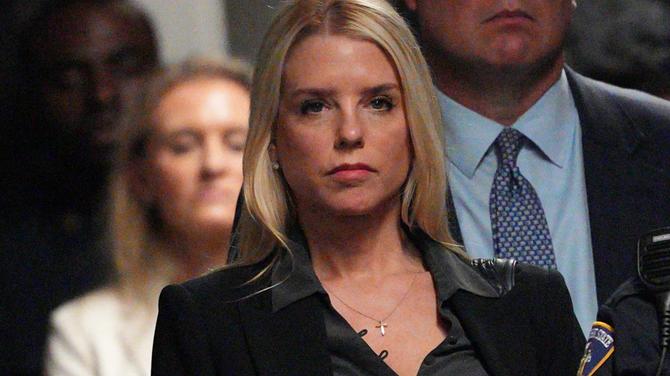
Bondi's career is known for her efficient handling of complex cases and strong law enforcement capabilities. During her tenure as Attorney General in Florida, she led a number of cross-state financial fraud and improper business practices lawsuits, setting an example for consumer protection and rigorous law enforcement. But at the same time, she also demonstrated her understanding and support for business innovation in her policies. In 2016, she pushed Florida to pass innovative regulations for the sharing economy, which was seen as an example of balancing regulation and development.
The Department of Justice's actions in the cryptocurrency field are usually focused on anti-money laundering (AML) and combating illegal activities. The previous Attorney General's crackdown on Dark Web markets and the crackdown on blockchain crimes show the Department of Justice's complex attitude towards the "good and evil" of encryption technology. However, these law enforcement actions have also been criticized for being too focused on negative phenomena and lacking recognition of the positive value of blockchain technology.
Bondi's position on the crypto industry has not been made public, but her consistent advocacy of "legal clarity" may lay the foundation for the regulation of cryptocurrencies. She once pointed out at an industry conference: "Ambiguous laws will only hinder innovation. What we need are clear rules to provide a fertile soil for the growth of law-abiding companies, while maintaining zero tolerance for illegal behavior." This coincides with the current demand for clear rules in the crypto industry. If Bondi becomes the Attorney General, she may shift the enforcement direction of the Ministry of Justice from "pure crackdown" to "both crackdown and support". While cracking down on crypto crimes, promote legislation to clarify the legal boundaries of crypto assets, thereby reducing industry uncertainty and providing more room for innovation.
The addition of Pam Bondi may bring new law enforcement ideas to the crypto industry. On the one hand, her tough style will continue to ensure zero tolerance for criminal behavior, especially in the areas of money laundering, fraud, and illegal financing. On the other hand, her emphasis on "legal clarity" may push the Department of Justice to provide clearer guidance on the enforcement of cryptocurrencies and avoid restricting the development of the industry due to legal ambiguity. In Trump's "crypto team", the addition of Bondi will inject more balance in the law enforcement level into the overall policy. She is not only capable of coordinating the contradictions between justice and innovation, but may also bring a more stable and predictable policy environment to the crypto industry.
With her nomination officially taking effect, the Department of Justice's encryption law enforcement strategy may usher in a historic turning point, and this change may be the opportunity that the entire industry has been waiting for with bated breath.
If Trump's crypto team is a complex policy machine consisting of core departments such as the SEC, CFTC and the Treasury Department, then the upcoming position of "crypto czar" is undoubtedly the lubricant of this machine-making all the gears run smoothly and without jerks. The proposal of this new position marks the first attempt by the White House to establish a dedicated senior coordination role for the crypto industry, which is no less important than other key members of the "team".
Crypto Czar: Global Coordinator of Team Trump
According to the latest reports, the Trump team is considering setting up a new position specifically responsible for crypto policy. This "crypto czar" will not only serve as a bridge between the president and Congress, but will also coordinate the crypto policies of federal agencies such as the SEC, CFTC, and the Treasury Department to ensure that the policy directions of these departments do not conflict with each other.
Imagine if the SEC chairman is pushing to relax the registration standards for crypto assets, while the Treasury secretary is busy tightening tax policies. Such a split will undoubtedly cause headaches for the entire industry. As a central coordinator, the "Crypto Tsar" will balance the interests of all parties in these potential policy contradictions, unify the course of action, and provide a stable and coherent policy environment for the crypto industry.
The establishment of this position reflects the importance of the crypto industry in the Trump administration. In the past few years, the cryptocurrency industry has been caught in the regulatory cracks of various federal agencies, with fragmented policies and inconsistent implementation. The SEC emphasizes the applicability of securities laws, the CFTC focuses on the derivatives market, and the Treasury Department focuses on anti-money laundering and tax compliance. This multi-headed supervision has caused many companies to wander in the policy fog and find it difficult to find a way forward.
The proposal of the "Crypto Tsar" is not only a response to this situation, but also a proactive attack on the global competitive environment. Trump obviously realizes that if the United States wants to stay ahead in the field of cryptocurrency, it needs a strong coordinator to make policies work together, rather than acting independently and hindering each other.
After the establishment of the position of "Crypto Tsar", this role will become the strategic coordinator of Trump's crypto team, providing more room for candidates in each department. For example, when Theresa Goody-Gillen strives for a grace period for rules for innovative companies, the "Crypto Tsar" can push the Ministry of Finance to cooperate and formulate more flexible tax policies. Or, when Giancarlo tries to promote new derivatives policies, the "Crypto Tsar" can coordinate other departments to avoid unnecessary interference in law enforcement.
The role of the "Crypto Tsar" is not only to coordinate policies, but also to think holistically: what kind of ecosystem does the crypto industry need? How can the United States stand out in the global competition? This position will become the core neural network for policy execution, connecting the key nodes in the Trump team and making the crypto team truly operational.
Of course, the establishment of this position itself may also cause controversy. Some traditional institutions may question its necessity and believe that coordination work can be done by existing institutions. However, just as blockchain technology achieves efficiency through decentralization, a dedicated "crypto czar" position may be the "centralized" answer to solving the problem of multiple supervision.
Trump's crypto team is gradually taking shape, and the addition of the "crypto czar" will make the system more complete. This is not only an innovation in the policy framework, but also an important signal of the United States' re-emergence in the global cryptocurrency field. When this "lubricant" officially takes office, Trump's crypto policy machine may really start, allowing the US crypto industry to move towards a brighter future.
at last
Against the backdrop of intensified global competition, the Trump administration’s “crypto team” not only represents an important policy adjustment, but also heralds a major turning point for the U.S. cryptocurrency industry. From the SEC chairman to the Treasury secretary, to the global coordination of the “crypto czar,” these potential appointments will set the tone for future U.S. crypto policies and provide new impetus for the compliance and international development of blockchain technology and digital assets.
However, the real challenge has just begun. How to find a balance between regulation and innovation, how to push the United States to stay ahead in the global cryptocurrency competition, and how to formulate clear and unified policies will become the historical responsibility of Trump's "Crypto Team".
The future is full of uncertainty, but hope is precious precisely because of this uncertainty. As the Trump administration gradually unveils the list of core members, the US crypto industry may be ushering in a new golden age. The policy machine has begun to operate, and the next chapter of history is being written by these key figures.







